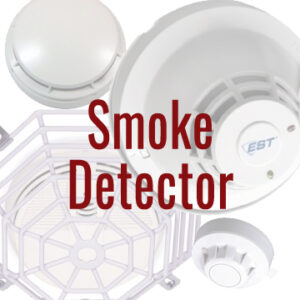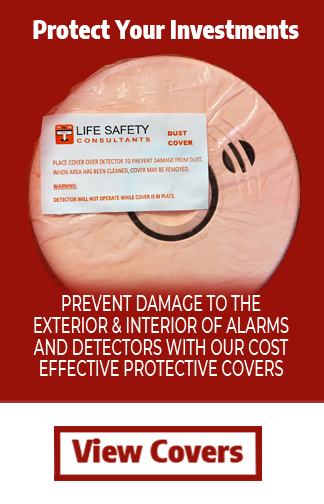 We take smoke detectors for granted. They’re everywhere these days, but that wasn’t always the case.
We take smoke detectors for granted. They’re everywhere these days, but that wasn’t always the case.
The Early History of Smoke Detectors
In the 1930s, there was a Swiss scientist named Walter Jaeger. He accidentally invented the smoke detector when he made a device to detect poison gas. His sensor device was supposed to move a meter when the poison gas entered it and altered the electrical current inside. Interestingly, he tried to get his device to work with the poison gas he had in mind, but nothing happened. So he lit a cigarette and pondered what to do next… and the detector went off (moving the meter) when it detected his cigarette smoke. The first modern smoke detector was born.
In 1939, another Swiss scientist, Ernst Meili, improved upon Jaeger’s invention. Meili utilized a cold-cathode tube which helped amplify the signal made by the smoke alarm’s detection mechanism which would trigger the alarm. This, in turn, made the detector more sensitive and more effective.
By 1963, The Atomic Energy Commission (AEC) granted the first license to distribute smoke detectors using radioactive material. These detectors were mostly used in public buildings including warehouses and factories during the 1960s. In 1969, the AEC first allowed homeowners to use smoke detectors– without the need for a license. By the 1970s, smoke detectors in homes became commonplace.
Modern Smoke Detectors
Today, there are two common types of smoke detectors found in residential homes. Ionization smoke detectors use a small and harmless dose of radiation to create a flow of charged particles in the device. When smoke enters the detector, it disrupts this flow. Sensors notice and then sound the alarm. In contrast, photoelectric smoke detectors use a beam of light inside the device to detect smoke. When smoke enters the detector, it disrupts the beam of light and, thus, triggers the alarm.
Even though it seems like smoke detectors have been around for a long time, they’re actually a relatively recent technological development.
If you need reliable commercial smoke detector replacement parts, learn how the experts at Life Safety Consultants can help.

